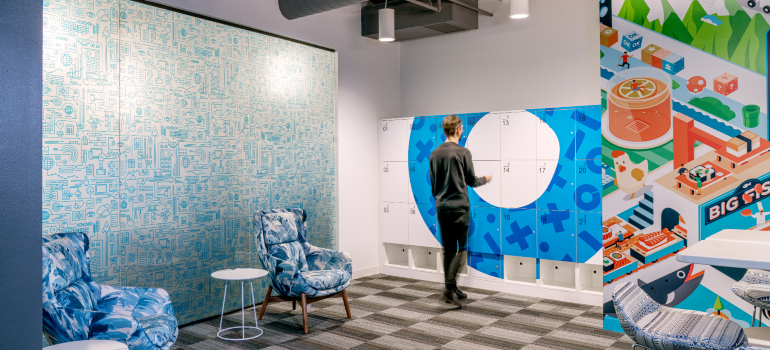Global accounting software and solutions provider, Xero, has brought to light its findings about the challenges that impede new technology adoption by small business owners. Mindset – comfort with change, willingness to give up familiar work tasks, and worry about tech support – play a significant role in tech adoption, it would seem.

In its One Step report, a unique study that sought to identify the psychology or behavioural barriers that hinder small business owners from adopting tech-based solutions, Xero has revealed behavioural roadblocks that slow down tech adoption as well as ways in which tech companies can better support small business owners.

Stevie Yap, PhD, Xero Vice President
I asked Xero vice president of research, Stevie Yap, PhD, about its One Step research, how mindset and emotions factor into tech adoption, and what digitizing could mean for small business owners.
Research: What are the Blocks?
To better understand the psychology behind tech decision making, Xero surveyed more than 4,200 small businesses last year, which informed its One Step report.
“The first thing to note is there will always be variability in how people adopt technology,” began Yap. “Just like consumers with new technology such as smartphones, we have the same categories that could be used to describe small businesses and their use of technology — categories such as early adopters or laggards.”
“In Canada, we found that with those surveyed 21% of small business owners were adopters of new technology while 30% were laggards.”
Said Yap, “The main point for me is that just because small business owners don’t adopt technology doesn’t mean they are necessarily resistant. There may be practical reasons they aren’t adopting yet as well, which we’ve seen in our research. There might be other challenges or practical reasons for not using new technology.
“For example, … it could be the need to first train people to use a new platform or getting data transferred into it — both problems we work hard to solve with an easy-to-use interface and great customer support, among other things.”
“So, for small business owners, it’s often a friction problem. There’s always this notion of ‘if it isn’t broken, it doesn’t need fixing,’” explained Yap.
“But often the value of digitization or adopting tech is flying under the radar,” remarked Yap. “A lot of the time with small business software, you aren’t always getting a new sale from it. However, the software can do things like create efficiencies in the business to add time back to your day, and you can use that time saved to do other work-related things to help create more sales or use it to enjoy personal time to focus on better wellbeing so you’re more refreshed and clear-minded at work.”
How does fear and emotion factor into tech hesitation?
“Often I would say it’s not the fear of the tools themselves, it’s the fear that the effort of adopting those tools won’t be worth it,” replied Yap.
“For example, technology like Hubdoc or Xero means you are using software to automatically digitize things such as bills or expenses. This won’t necessarily lead to a new sale or client, but it gives you that time back to do other things you need to do whether for your business or yourself personally.”
Explained Yap, “It’s important to overcome that return-on-investment concern. The key for small business owners is to do your research and think critically about how adopting a tool for your business would impact your life as a whole.”
“Doing your research is particularly important in 2022 because, as we’ve seen already, it continues to be a challenging time. Businesses need to use whatever tools they can to support their business, their employees, and their own wellbeing. We need to take care of ourselves now more than ever.”
There is a vulnerability when adopting new technology, especially as one’s income and those you employ depend on your decision making.
Yap elaborated, “I’m a psychologist by training and do research in this area, so I’m definitely familiar with this. I would say that, yes, absolutely emotions underlie all the decisions we make in life and small business owners are no different.”
“There is a sense that business owners should be making decisions with a utilitarian perspective — what’s the value-add, how much does it add to the bottom line, and so on. But I’m a strong proponent of simply working well,” shared Yap.
“Again, I used to be a small business owner myself. There’s a lot to be said about investing in yourself, your business and your people holistically in ways that support their emotions and wellbeing. There is value-add there, even if it isn’t direct.
“Small business owners particularly took a hit with their mental health these last couple of years. Right now it’s about getting through this tough time and not burning out so we can all be focused on recovery. We want to be there to support your journey of growth, mental health, and wellbeing.”
What about Cost?
“Research shows that cost is often cited as the number one focus for small business owners when they consider new technology. So, I do think it is a concern, but whether it is a barrier really depends on what technology you’re talking about,” remarked Yap.
“For example, a really expensive POS system: if you don’t have the funds to buy it, you won’t have it. But a lot of the technology out there for small business owners, including ours at Xero, doesn’t have such a high cost that it’s a barrier. However, it does come back to the notion of having a return on your investment.”
Added Yap, “With some technologies, such as ours, the return on investment doesn’t always look straightforward. The technology might not necessarily be leading to another direct sale, but it can help you out in other ways to add time and value to your day-to-day that can ultimately let you have a more fulfilling life.”
Thinking of tech-enabled work as a way to free up time.
“When I was a small business owner, I didn’t adopt the technology I used because it helped me gain sales,” shared Yap.
“In order to gain sales, I networked or did other in-person things that didn’t rely on the tech. The technology that I did end up using to run my business was there to do the things I didn’t want to do.”
“Having that technology freed me up to do more networking coffees or other things that would actually lead to more sales,” stated Yap.
The One Step Mindset Quiz
Are you a tech adopter or delayer?
If you are curious about what sort of behavioural barriers might affect the way you adopt technology at work, Xero has a mindset quiz you can take.



